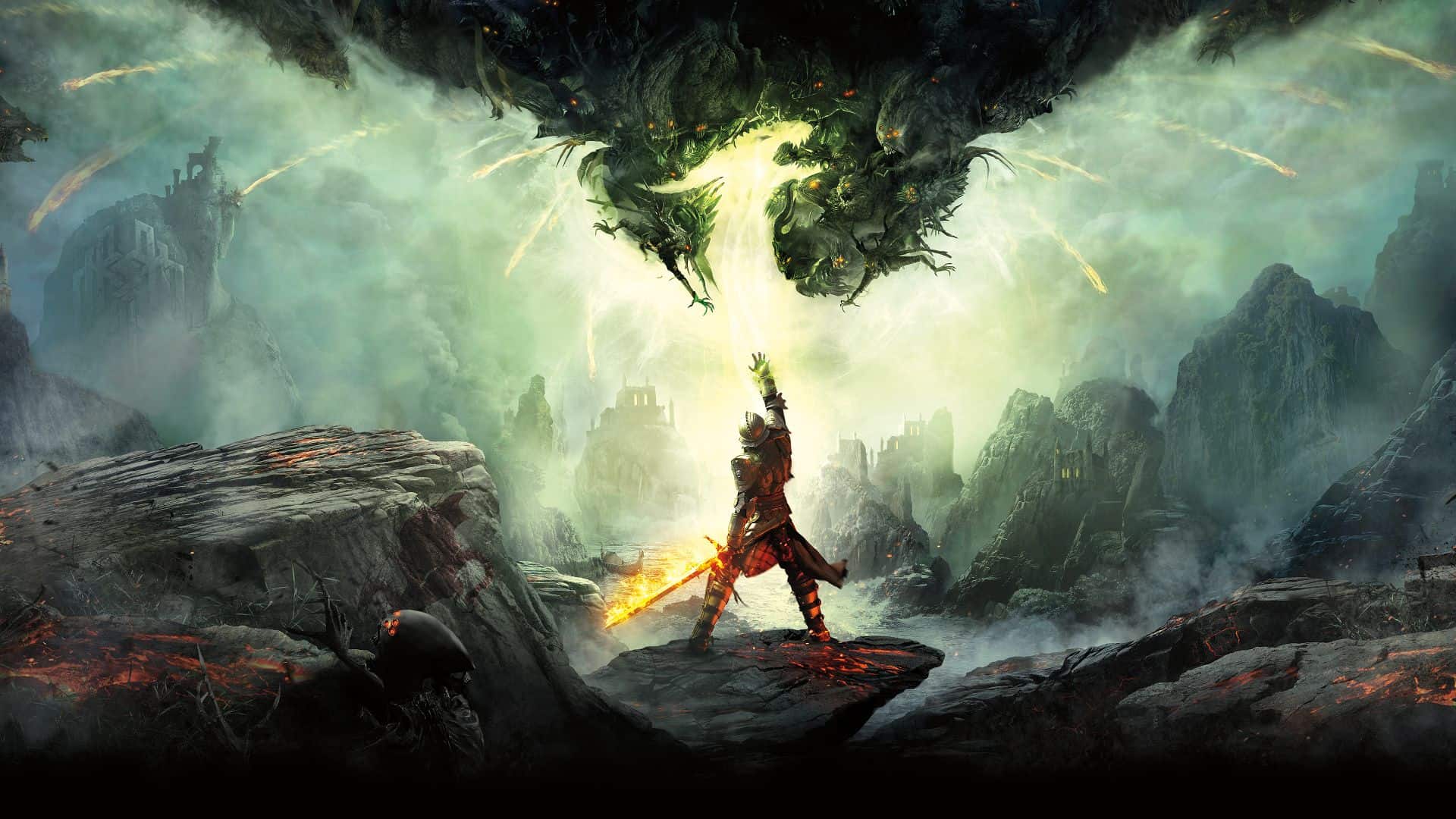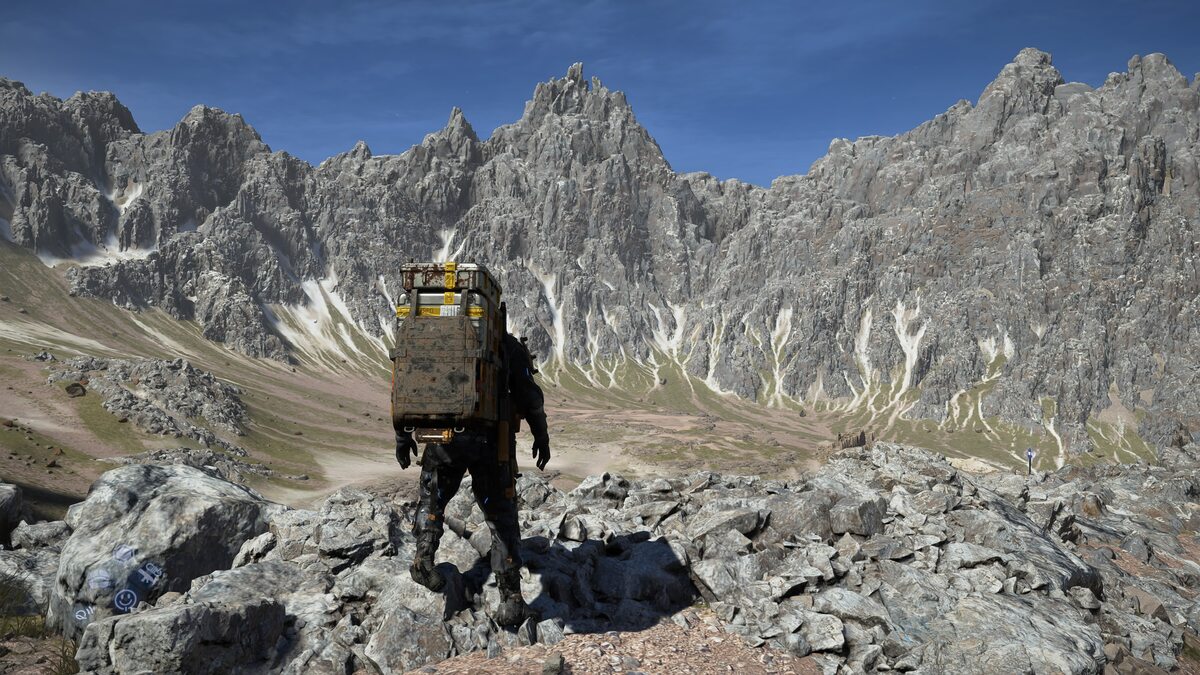You can trust VideoGamer. Our team of gaming experts spend hours testing and reviewing the latest games, to ensure you're reading the most comprehensive guide possible. Rest assured, all imagery and advice is unique and original. Check out how we test and review games here
Dragon Age: Inquisition had me worried. As soon as the prologue wrapped up and my newly-made character had been branded the saviour of the entire world, the game eagerly fell into a routine that I found tedious. With each new region that was unlocked, I’d find an abundance of ‘quests’ to complete, but in the vast majority of cases there would be very little in the way of a story to accompany them (“collect 10 ram meat” being a great early example). It wasn’t very, well, Dragon Age.
Completing enough of these drab objectives would allow me to rush back to camp and reveal the next thin slice of storyline. Rinse and repeat. Those slices soon began to feel like the only real reward for all the grinding busywork, offering the meaningful dialogue and decision-making that I’d also expected in other aspects of the game.
For the most part I enjoyed the real time combat (albeit with an ability to pause and give orders), with its emphasis on flashy, over-the-top abilities and spells. Thedas, too, is a gorgeous world to explore. But like most no doubt, I came into Inquisition with some pretty hefty expectations, and a very large portion of the game just wasn’t living up to them.
Then something brilliant happened. There’s a turning point somewhere around the 15-hour mark (yeah, I know: more on that later), that sees your hero catapulted from errand boy/girl to the leading power within the Inquisition. It’s exactly what the experience needed, and perhaps in an effort to make up for that underwhelming first act, the game happily starts chucking big, world-altering decisions at you from here onwards. The Inquisition, which had primarily been an army thus far, soon evolves into a political power in its own right.
This finally allowed Dragon Age to start being Dragon Age again – with player-driven dialogue at the very forefront – and I was back to making all the wrong decisions with regards to the ethical use of magic, my alliances, historical tensions, and various punishments for those that may have wronged me along the way. These choices may have been largely surface level stuff, but it went a long way to making my character’s story feel personal to me – which is something that had been lacking in the early stages of the game and is, to a point, the appeal of the series.
Jumping to the top of the Inquisition hierarchy also brought with it some pretty hefty expansions to the world map, as a whole bunch of new areas turned up with their own set of demon-related catastrophes for me to wave a sword at. This is a monstrously large game, both in terms of the size of these open-world areas and just the vast quantities of *stuff* that you’re encouraged to do while wandering around them.
Unfortunately I found that the side quests do remain pretty bland throughout, rarely trying to tell meaningful stories, which is especially disappointing when you look back at where Dragon Age started. Has quality been substituted for quantity here? I think so, and Inquisition ends up relying heavily on a lot of interesting things going on back at base, to distract you from that realisation. It’s not the huge problem I originally assumed it would be, but it does separate this game from Origins’ approach to storytelling in my eyes.
But yes, for those of you that enjoy filling up bars and want a consistent sense of progression, Inquisition has that in spades. Hundreds of demon-spewing rifts to close, areas to discover, and collectibles to… collect. You’ll always be improving something or unlocking something else, whether that be specific to a character, or the war effort as a whole. Bioware’s claims that a complete playthrough could take more than 200 hours sounds pretty accurate, from what I’ve seen.
With all those demons/templars/mages/bandits to wade through, it really does help that the combat itself compels throughout. It’s not that dissimilar to Dragon Age 2, although as mentioned earlier it does bring with it a tactical view, which pauses the game and allows you to carefully give instructions to your party members. Or y’know, just take a breather. I’m a big fan of the freedom of camera movement in this mode as well, allowing players to have a proper look at some of those flashy magic effects up close.
Other than the tactical camera, the other big change comes in the way that healing works during battle. Gone are the healing mages of old, who demanded a position in every party, and instead you’ll be relying on knocking back an expendable supply of healing potions. You can only replenish these at certain checkpoints, or when returning to camp, and so it becomes imperative that your party doesn’t take unnecessary damage prior to a big fight. The closest comparison to this setup is probably the Dark Souls series, which has you using flasks in a similar way. Don’t worry, that’s the only comparison I’ll be making between these two franchises.
On the whole I enjoyed the combat for the most part, finding that although most fights could be wrapped up without relying on the tactical view, it tended to prove much more important during the larger encounters. That’s pretty much as expected. Being able to jump over terrain, and use a couple of abilities that had my character leap across the battlefield, also meant that most battles had a good sense of fluidity to them. I’ve surprisingly become quite fond of the focus on action and big, extravagant attacks. It’s nothing like Dragon Age: Origins, but I think I’m starting to be okay with that idea.
Although I completed my playthrough on the PlayStation 4 version of the game, I did prefer playing on the PC, especially when it came to the combat. It still feels a lot more comfortable controlling party members with a mouse and keyboard, and having a proper hotbar for all your abilities still shouldn’t be underrated.
Outside of the controls, console players aren’t being short changed too much. Inquisition does – unsurprisingly – look and run better on the right PC, but it’s still a very handsome game on the new generation of consoles and the lack of loading times once you’ve entered one of those immense open-world regions is impressive across the board. Some limitations should obviously be expected from either the Xbox 360 or PlayStation 3 versions, but we haven’t had a chance to play around with those for ourselves as of yet.
It also needs to be pointed out that Dragon Age: Inquisition does have its share of technical issues, as is often and unfortunately the case with more ambitious open-world games. I found myself needing to restart my console several times during the playthrough after encountering issues with the game freezing, and the occasional line of dialogue would also need to be manually skipped in order to continue with a conversation. These problems were fairly infrequent, but could prove extremely frustrating when they cropped up at key moments in the story.
All in all, I’ve had a great time leading the Inquisition. It’s unusual to be able to look back at a game like this and have such fine memories, despite being so underwhelmed by its opening hours. For some, it may well feel like too much of a grind to begin with, and for time-poor players those 15 hours may be far too much of an investment.
Persevere, however, and there’s a story that’s worth being part of here. Once it does get going, Dragon Age: Inquisition offers a number of very welcome surprises for those of us invested within this series, with even the briefest nods to decisions that we’ve made and the characters that we’ve encountered in past games feeling crucial.
Its greatest strength, however, is that it also manages to make the Inquisition itself feel extremely important to the world of Thedas. Almost everything you do (even the monotonous side quests) feeds into this idea that your forces are expanding and your influence growing. By the end of the game, it becomes clear that you’re not just going to save the world, but change it irreversibly. And that’s a pretty powerful feeling.
Version Tested: PS4 (completed) and PC
Dragon Age: Inquisition
- Platform(s): PC, PlayStation 3, PlayStation 4, Xbox 360, Xbox One
- Genre(s): Action, RPG, Strategy







